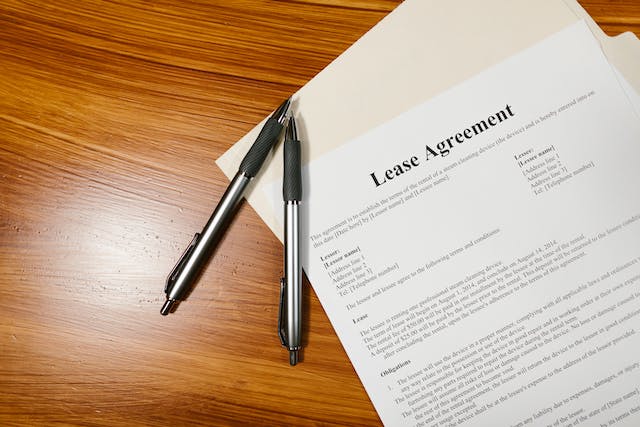As an Arizona residential landlord, familiarizing yourself with the state’s landlord-tenant act is key to success. Among other reasons, you’ll be able to avoid potential legal trouble about a tenant, protect your tenants and your rights, and maintain a good relationship with your tenant. In this blog, you’ll learn the basics of the Arizona landlord-tenant law.
Required Landlord Disclosures in Arizona
Before allowing a tenant to sign the written rental agreement, Arizona state law requires landlords to provide a tenant with certain disclosures. The following are some of them:
- Information regarding the use of lead-based paint. This is specifically meant for landlords renting out units built before 1978.
- Educational materials about bed bugs.
- The names and addresses of the party tasked with managing the rental property.
- The purpose of any nonrefundable fees that the landlord requires tenants to pay.
- A copy of the Arizona landlord-tenant laws.
- How utilities are going to be shared among tenants.
Arizona Tenants’ Rights & Responsibilities
A tenant in Arizona has the following rights. A right to:
- Continue living on the rental property until the Arizona residential landlord has followed the proper removal process.
- Receive proper notice from landlords before the implementation of any rental agreement terms.
- Live in peace and quiet.
- Have repairs completed within a reasonable time.
- Be notified before landlord entry.
- The return of their security deposit after moving out.
- Break the rental agreement legally without penalty for certain justified reasons.
- Not to be retaliated against for exercising a legal right, such as forming a tenants’ union to advocate for their rights.
- Live free from any discrimination based on certain protected classes.

An Arizona tenant is responsible for the following once they sign a lease or rental agreement:
- Maintain the unit to the required habitability standards.
- Keep the unit clean and sanitary.
- Not make any illegal alterations to the unit.
- Fix any negligent damage they make to the unit.
- Not disturb the peace of other tenants or neighbors.
Landlord Rights & Responsibilities in Arizona
Arizona landlords have the following rights under Arizona landlord tenant laws. A right to:
- Evict a tenant for violating a term of the rental agreement.
- Hold a tenant liable for all rent payment due for breaking a rental contract early for a legally unjustifiable reason.
- Raise rent on a tenant by any amount and as often as the landlord chooses.
- Enter rental premises for certain justified reasons, such as to inspect the dwelling unit or conduct property showings.
- Impose a fee on late rent payments.
As for the responsibilities Arizona landlords have, they are as follows:
- Provide the tenant with certain mandatory disclosures before allowing them to sign the lease.
- Make needed or required repairs within a reasonable time.
- Follow the state law when evicting a tenant for a lease violation.
- Abide by the state’s security deposit laws when keeping a tenant’s security deposit.
- Comply with the state’s health, safety, and building codes.
- Treat all tenants equally and fairly as per the state’s discrimination laws.
- Make reasonable efforts to re-rent the unit after a tenant breaks their rental agreements.
- Notify a tenant before raising rent.

An Overview of the Landlord-Tenant Laws in Arizona
The following is a general overview of key elements that make up Arizona’s landlord-tenant laws:
Warranty of Habitability
As an Arizona residential landlord, you must comply with the state’s warranty of habitability. In other words, you must meet the state’s basic safety, health, and building codes. Some of the items that you are obligated to provide your tenant with include:
- Heating and air conditioning.
- Hot water.
- Adequate trash receptacles.
- Working smoke and carbon monoxide detectors.
In addition to these, landlords must also make needed or requested repairs within 1-10 days of receiving proper notification.
Arizona Fair Housing Laws
The Federal Fair Housing Act makes it illegal for a landlord to discriminate against a tenant based on the 7 protected classes of race, color, religion, familial status, sex, familial status, and nationality.
Landlord Entry
Arizona state law guarantees landlords the right to enter rented premises. There are certain caveats that an Arizona landlord must abide by, like:
- Only enter the rented premises when carrying out an inspection, maintaining the property, or showing the rental unit or property to an interested tenant or buyer.
- Provide the Arizona tenant with an advance notice of at least 2 days.
- Enter during normal business hours.
Lease Termination
Either singing party can break a periodic rental agreement after serving proper notice. For instance, if as the Arizona landlord, you no longer wish to continue renting to a month-to-month tenant, you must serve them a 30-day advance notice.

However, when it comes to fixed-term leases, a tenant must have a legal reason before they can break their lease. Such reasons include active military duty, uninhabitable units, and landlord harassment. If the tenant wants to break their rental agreement for legally unjustifiable reasons, the landlord may still be able to hold them liable for all rent due under the lease.
Tenant Eviction
Landlords in Arizona have a right to evict a tenant who violates terms in rental agreements. Common lease violations include failure to pay rent and violating a term of the lease agreement. Landlords must follow the Arizona eviction laws.
To evict such a tenant in the state of Arizona, a landlord must follow the proper eviction process. Landlords must not try to use “self-help” methods, such as locking the tenant out or trying to evict a tenant based on a protected class.
Bottom Line
For a smooth tenancy, it’s important to familiarize yourself with the Arizona landlord-tenant act. Hopefully, this guide has provided you with all the basics you need to get started. If you are looking for expert help in the management of your Arizona property, then look no further than Mark Brower Properties. Get in touch to learn more!
Disclaimer: Please note that the information provided in this blog is intended for general guidance and should not be considered as a replacement for professional legal advice. It is important to be aware that laws pertaining to property management may change, rendering this information outdated by the time you read it.




